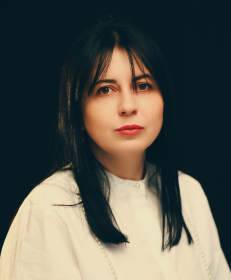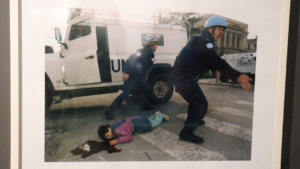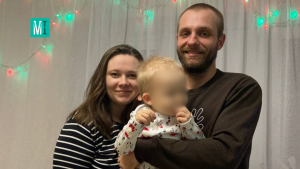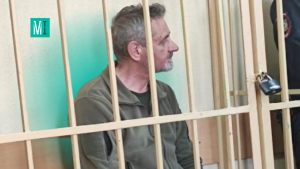Medicine Under Occupation: Overseer from Tuva, Russian Doctors, and Detention for Refusing to Cooperate
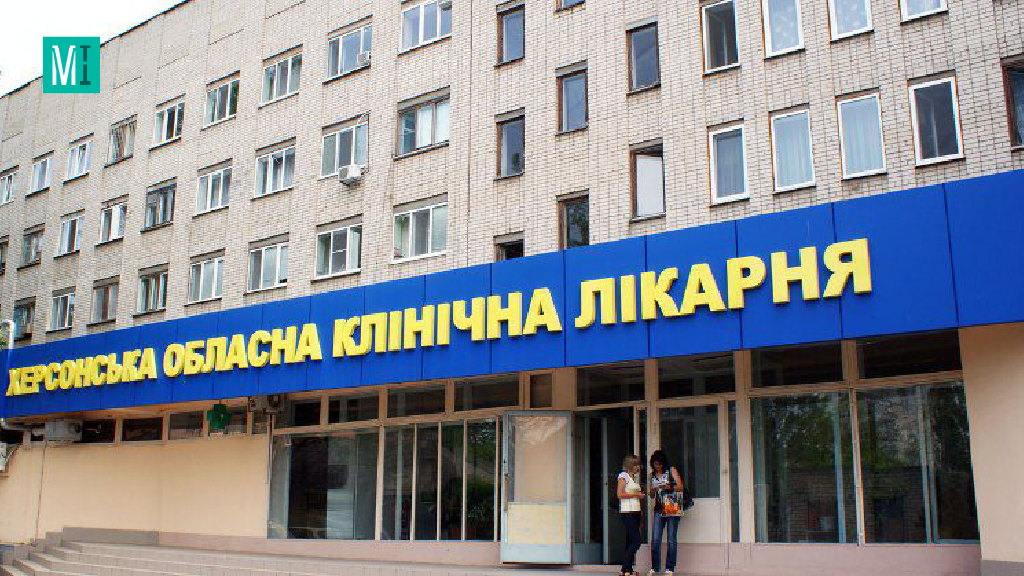
“At the beginning of June, the Kherson Regional Clinical Hospital was an island of the Ukrainian state in the occupied city. In February and early March, Ukrainian military personnel wounded while fighting for the city were admitted to Kherson hospitals. Doctors hid them, helped them find civilian jobs, invented cover stories for them, and concealed their military IDs. Over the course of the next two months, all the Ukrainian army men who were cared for by the medics managed to leave the occupied city.” This is how the MIPL’s conversation begins with an endocrinologist of the Kherson Regional Clinical Hospital, (whose name is not disclosed for security reasons).
The doctor had worked in occupied Kherson for five months before leaving, but his colleagues remained there, and he still tries to stay in touch with them.
He says over eight months, the medical system felt both the need to resist Russian oppression and compelled to treat according to the standards of the Russian Federation. saw the escape of collaborators, that had a significant influence on the medical system, as well as the looting and destruction of hospitals.
“Until May 30th, doctors had Ukrainian cell service and the Internet, they issued referrals and prescriptions even to those patients who had gone to the territory controlled by Ukraine. They spoke Ukrainian. Despite the shelling of cars, volunteers tried to transport volunteer medical aid across the battle lines. However, with every passing month it became more and more difficult to work,” he adds.
Attempts to learn patients’ personal information
The occupation of the medical sector of Kherson began in the summer of 2022, says the doctor. Before, Russian citizens were present in medical institutions, but did not try to implement their rules. In June, they began to summon hospital management for talks. All directors, their deputies, and department heads were gathered at the renamed Ministry of Health Protection of the Kherson Region.
“Most were pressured to come. I remember that only the deputy director of the Children’s Regional Clinical Hospital came of his own accord. This institution is known for being the first in the city to declare its support for the occupiers,” says the doctor from Kherson.
He participated in similar meetings with the occupiers twice.
“During the first one, Russians and collaborators suggested that doctors leak patients’ personal information through access to e-Health, the electronic database of patients. Specifically, I was asked which of my patients receive insulin, and how much money is spent on it. The feature of this database is that it stores confidential information only accessed by doctors. In addition to home addresses and phone numbers, it includes passport data and contact information. Benefit entitlements are also indicated, in particular for participants of the ATO. I was worried because the day before I had had a patient from an occupied city of the Mykolaiv region, a veteran of the anti-terrorist operation, suffering from diabetes. Russians found out about his illness, put him ‘in a pit,’ and waited for him to die slowly without insulin. He managed to escape and get to an appointment with me. I tried to save this patient – I gave the man the contact information of my acquaintances who provided shelter for him.”
In the end, according to the doctor, he told the Russians that due to problems with the Internet, he got disconnected from the e-Health system, thus securing the patients’ personal data. He promised to provide only general information about the total number of patients and those receiving insulin.
Overseer from Tuva – the ex-Minister of Health came to Kherson
”For the second time, doctors were summoned and offered cooperation,” the doctor recalls. “This meeting was attended by Oleksandr Nesterenko, an onco-gynecologist from the Kherson regional oncological dispensary, and Vadym Ilmiyev, a well-known collaborator and associate of Gauleiter Volodymyr Saldo.”
It is known from open sources that in 2015 Ilmiyev ran for the Kherson City Council representing the Union of Left Forces. Two years later he joined the leadership of the Ukrainian Choice group headed by Viktor Medvedchuk (a politician suspected of treason). In 2020, he ran for the Kherson City Council as a member of the Volodymyr Saldo Bloc. In July 2022, the Kherson Regional Prosecutor’s Office reported that criminal proceedings had been initiated against Ilmiyev under Part 5 of Article 111-1 of the Criminal Code of Ukraine, resulting in him facing up to 10 years in prison with confiscation of property.
Ilmiyev, who has nothing to do with the medical field at all, decided to cooperate with the occupiers and was also appointed as the so-called Head of the Department of Health Protection of the Kherson Region of the Military-Civil Administration of the Kherson Region – an illegally created authority responsible for dismissing and appointing doctors.
“However that meeting was led by the ex-Minister of Health of the Republic of Tuva, Artysh Sat, a compatriot of the Minister of Defense of Russia, Sergei Shoigu. As it turned out, he was appointed not only as an adviser to Saldo, but also as a overseer of the medical industry in the Kherson region. It was he who actually took charge, while Nesterenko, a collaborator, helped the occupiers with information because he knew all Kherson doctors well and provided information about them to the occupation administration. He illegally took the position of chief physician of the medical institution where he was employed. The meeting was guarded by two people with machine guns who did not have any distinguishing markings, they wore flags of the Russian Federation and the ‘Z’ symbol on their chevrons,” the doctor says.
For about two hours, they kept the doctors in the hall and told them that they wanted to include them in the structure of the occupation ministry and appoint some doctors to positions in the occupation administration.
“They emphasized that doctors have to register as Russian specialists and suggested retraining in the Russian Federation. The occupiers promised doctors a salary of 80-100 thousand rubles (1,200-1,650 thousand USD). They collected our phone numbers. I was told off for not buying a Russian SIM card to keep in touch with Russians. They said: “Why don’t you have a Russian cell service? After all, we hope for close cooperation with you! There are few endocrinologists left. You will work in the department. We will give you a salary. If you perform well, we will send you to the Far East!” In the Far East, they provide a hectare of land, so Russians considered such an offer an incentive for Ukrainian doctors. The audience’s reception of this meeting was unenthusiastic,” the doctor adds.
He claims that the occupiers had separate non-public conversations with representatives of the pathology service. Previously, the MIPL received testimony that Russians did not allow forensic medical experts to leave the occupied territories. The probable reason for such measures was that they could see the consequences of war crimes and publicize them.
“Under control”: pharmacy chains and medicine supplies
At the beginning of the occupation, the Russians took control of the pharmacy chains in the region – the Podorozhnyk pharmacy chain became Alfa, Persha Sotsialns Apteka turned into Omega, and Derzhavni Apteky were opened at the regional clinical hospital. The doctor says that the new “owners” are entrepreneurs from the Moscow region and Vladivostok.
The assortment has also changed. Ukrainian and most foreign drugs were replaced with Russian ones.
“If you compare Ukrainian and Russian drugs, the latter lose. For example, insulins produced in Russia are poison which is quite likely to cause complications. If there are companies in the Russian Federation manufacturing high-quality medicines, it is only because their ingredients are produced by other countries. Medicines that Russians import from Europe are not much different from ours,” says the endocrinologist.
From the controlled territory of Ukraine, the Kherson Regional Clinical Hospital was being remotely managed by Director Viktor Korolenko through his deputy. He managed to evacuate from the occupation in May. But on July 1, representatives of the FSB came to the hospital and detained the director of medical affairs and the head of the personnel department of this hospital. Later, the local media wrote that they were taken out of the premises in handcuffs, but returned a few hours later.
“That was when I understood that it was dangerous to stay in Kherson,” continues the endocrinologist. “In addition, in 2014 I graduated from the military department, and the occupiers could have found out about it. I left through Vasylivka, Zaporizhzhia region, pretending to be a student. I shaved carefully, got rid of my beard, and grew the hair on my head longer. On July 7, when Putin gave the Russian military a day off to celebrate the capture of the Luhansk region, I left the occupation. I had been one of the last endocrinologists remaining in the city and in general on the right bank of the Kherson region,” he adds. “Shortly after my departure, the occupiers made lists of people banned from evacuating. They included the management of the medical industry of the region. People were actually held hostage during the occupation.”
MIPL is aware of at least seven cases of detention of doctors and medical workers in the occupied Kherson region. Some were released after some time, while the fate of several of them remains unknown.
Our interlocutor says that it is dangerous for Ukrainian doctors to work under occupation now, especially in small settlements as they can become victims of kidnappings. Firstly, there are fewer witnesses to kidnappings in towns and villages, and secondly, it is easier to pressure and force them to cooperate. The reason for the abductions could be the refusal to accept Russian salaries or social assistance, or the compulsion to travel for retraining, which the occupiers announced on the 20th of June.
Medical landing force from Kabardino-Balkaria
In August, Russian doctors from the Russian Federation, in particular from the Republic of Kabardino-Balkaria, arrived in Kherson. They worked in the city until September. According to the doctor, they were sent on a business trip due to the constant shortage of Ukrainian specialists. Some of them later said that they had not wanted to come, some frankly believed that they had come to help, and some admitted that such a business trip was an opportunity to earn money (according to them, they were paid 200-300 thousand rubles, which is 115-175 thousand hryvnias per business trip, like the military).
“Russian medics, along with security, were accommodated in the department where I worked. The Russians had a separate room where they slept and ate. The new management of the hospital told the nurses and orderlies to help them with everyday life, including washing things,” the endocrinologist recalls. “The vast majority looked down on Ukrainians: they believed that Ukrainian doctors were serfs, and Russian doctors were luminaries of medicine. Of course, our doctors did not like this at all. To contain the indignation, some of the Ukrainians were taken by the FSB for a conversation or summoned to the captured department.”
The doctors from the Russian Federation worked not only in the endocrinologist’s department, but also in others. Among them were anesthesiologists, a dentist, and a surgeon.
“Patients, like all inhabitants of Kherson under occupation, were afraid of the Russians, so even Ukrainian-speakers tried to talk to them in Russian,” the doctor adds.
He says that they did not know the names of the Russian doctors in the hospital, nor did they introduce themselves to the patients. Even when the occupied Kherson TV channel VTV+ prepared stories with comments from the doctors from Russia, they were not subtitled, and sometimes even their faces were hidden. They addressed each other by their first names in the hospital, but Ukrainian doctors think that they could have been made up.
Paper flow document circulation and elimination of electronic databases
“The Russian doctors were indignant, saying that Ukrainians destroyed the health care system that existed during the Soviet Union, they complained that we have few hospitals and departments. It turned out that they were not familiar with such concepts as reimbursement (payment of compensation) of medicines and electronic prescriptions. They did not know that in our country patients do not have to pay for insulin and can get it not only at the place of residence, but also in any city of the country with an electronic prescription,” says the doctor.
Instead, the Russians demanded that paper documentation be kept in hospitals, they did not even want to hear about electronic databases and confidentiality.
A separate topic is the desire of the Russian doctors to switch to the Russian treatment protocols and use “good Russian medicines”.
However, the Russians liked the equipment, and they tried using it.
The Russians sought to restore all medical institutions in Kherson that had been closed or reformed as part of the medical reform. They were angry that our medical system did not function in the same manner as theirs. Russian health care, as the collaborators and the Russians especially emphasized, works according to the Semashka system, an old Soviet system, which includes dispensaries and sanatoriums. The Russians explained that they had free and insured health care. Therefore, they planned to remake the Ukrainian one to bring it closer to the Soviet one, but with elements of the Russian insurance and health care systems. It was supposed to be free due to mandatory insurance.
“But the Russians did not implement their standards and approaches for long. By the middle of September, they had already left Kherson, and on October 2nd, they also left Berislav, a city on the right bank of the Kherson region farther up the Dnipro. Together with the Russians, medical collaborators who openly supported the occupation, went to the left bank, Crimea, and Russia,” says the endocrinologist from Kherson.
“Gifts” from Yedinaya Rossiya
The medics went to the left bank of the Kherson region, and the Russians decided to take equipment with them. A doctor from Kherson thinks that they will not take him to Russia, but will leave him in the occupation. They will act just like after the capture of Mariupol, where medical equipment was taken out and then transferred to Donetsk medical institutions in the form of humanitarian aid from the Yedinaya Rossiya party and the Russian government.
The pharmacies appropriated by Russian businessmen have also closed. As of the end of October, only three pharmacies remained open in Kherson. Two on Ushakova Avenue and one on Universytetska Street. All of them are selling off the remaining inventory, and new medicines are not getting delivered. The doctor thinks that when the existing stocks run out, a spontaneous trade in medicines will begin in the city, as happened in the spring when the occupiers did not allow the import of Ukrainian medicines into the region and did not supply their own.
Presumably, the occupiers took some of the drug stocks from the closed pharmacies to the hospitals to use them for treating Russians likely to be wounded in upcoming battles for the city. Patients have already been discharged from the hospitals with many sent home for treatment
“On October 20th, the occupiers ordered lists of employees ‘for evacuation’ in the hospitals, and the next day they ordered the discharge of all patients. Currently, many Kherson doctors have left, but there are still specialists who can provide emergency care in the city. Several private clinics also operate in Kherson, but due to the lack of specialists and the lack of specific equipment, their treatment options are limited,” concludes the doctor from Kherson.
—
The material was prepared by the Media Initiative for Human Rights with support from the Hela Sverige Skramlar for Ukraina project.


